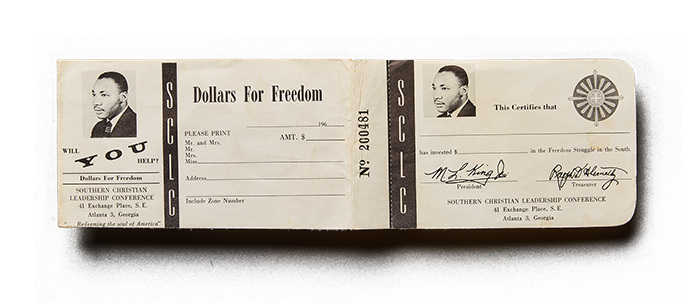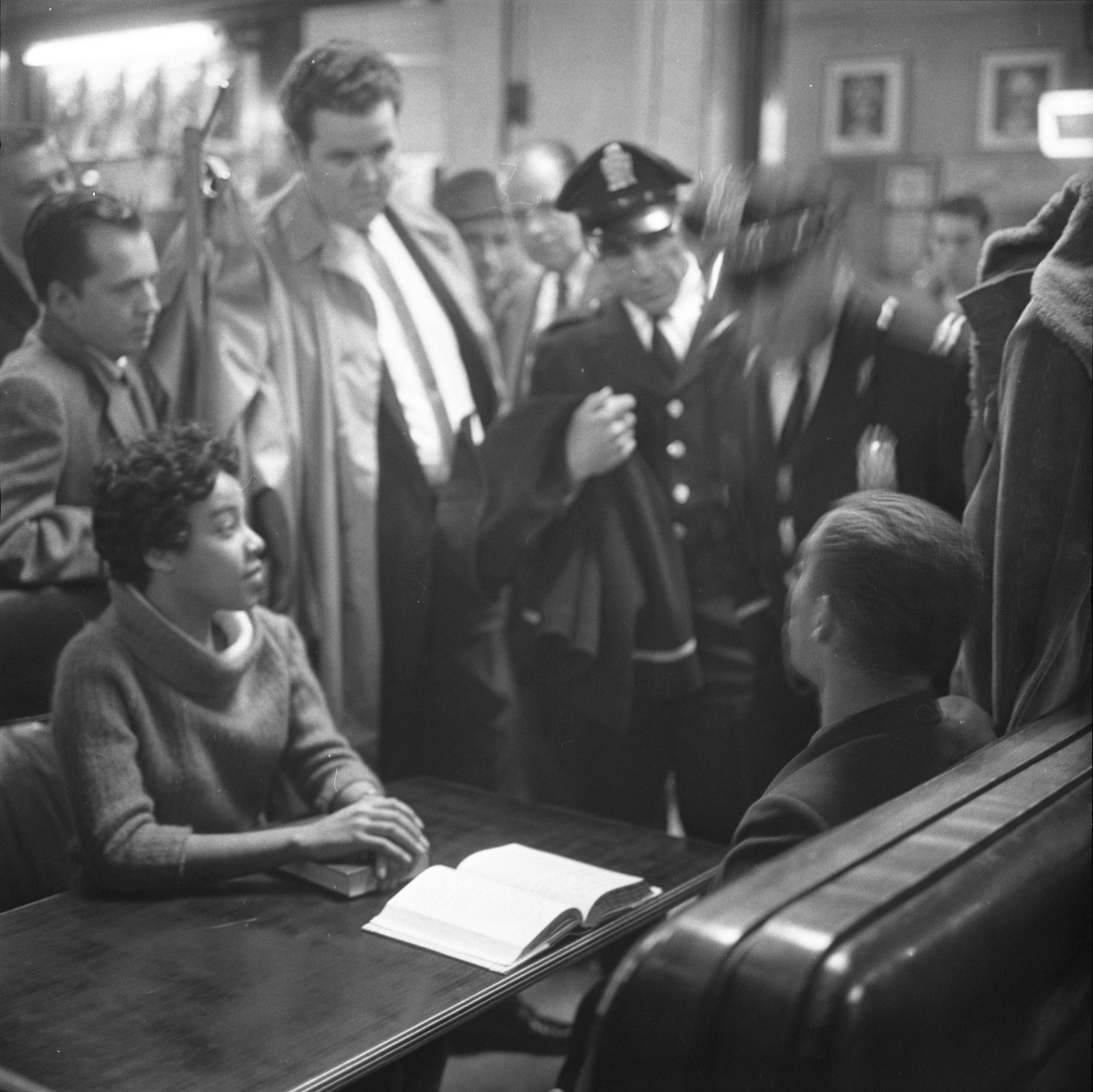Atlanta in 50 Objects
A pink pig and a renegade cow. A movie prop and a Coke bottle. A Pulitzer Prize–winning book and a Nobel Prize–winning icon.
How do you tell the story of Atlanta in 50 objects? We decided the best experts were Atlantans themselves—residents who cheer the Braves and rue I–285 rush-hour traffic, who understand how Civil War losses and Civil Rights victories together helped forge the city’s unique identity. Atlanta History Center asked the public to submit what objects they think best represent their town. The parameters were broad: an object could also be a person, a place, an institution, or an idea. After receiving hundreds of submissions, History Center staff assembled a collection of fifty pieces that represent the themes identified by the public. In addition to items from our own collections, we have partnered with many local institutions and individuals to gather artifacts from around the city to tell this community–driven story.


Civil Rights Activism
Atlanta is often called the cradle of the modern Civil Rights Movement. A strong infrastructure created by the organizations and businesses of “Sweet Auburn” Avenue combined with the city’s historically black colleges and universities helped establish positive change during the 1950s and 1960s.
The Southern Christian Leadership Conference (SCLC) formed in Atlanta in 1957 to coordinate protest activities across the South. Led by Martin Luther King Jr. and Ralph David Abernathy, the SCLC trained communities in the philosophy of nonviolent civil disobedience and organized voter registration drives. The SCLC’s work was instrumental in the passage of the Civil Rights Act of 1964 and the Voting Rights Act of 1965.
In 1960, a group led by Morehouse students Lonnie King and Julian Bond organized sit-ins to challenge segregated public accommodations. On March 15, two hundred students entered ten Atlanta eating facilities; seventy-seven protesters were arrested that day.

African American students at a sit-in at Atlanta Union Station, March 15, 1960. Courtesy of Atlanta Journal-Constitution Photographic Archives, Special Collections and Archives, Georgia State University